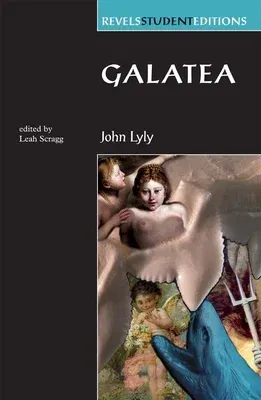Devised as an entertainment for a Tudor monarch and engaged with matters
particularly pertinent to the Elizabethan state, Galatea might be seen,
paradoxically, as a parable for our time. Inhabiting a world threatened
with inundation and engaged in a process of change, the characters find
themselves locked in a series of transgressive situations that speak
directly to contemporary experience and twenty-first-century critical
concerns. Same-sex relationships, shifts of authority, and the
destabilization of meaning all lend the drama a surprising modernity,
making it at once the most accessible of Lyly's plays and the one most
frequently performed today.
Specifically designed for the student reader, Leah Scragg's edition
offers a range of perspectives on the work. An extensive introduction
locates the play in the context of the Elizabethan court and the
performance of plays by juvenile troupes, opening a window upon a kind
of drama very different from that of more familiar sixteenth-century
dramatists such as Marlowe and Shakespeare. The latter's indebtedness to
the work is fully documented, while detailed critical and performance
histories afford an insight into the susceptibility of the work to
reinterpretation.
Newly edited from the earliest witness, the quarto of 1592, and richly
annotated for the modern reader, this edition allows access to the work
of a writer who was a central figure in the cultural life of late
sixteenth-century England and is still capable of speaking to audiences
today.

